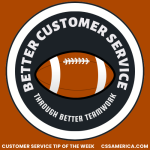The company was instituting new human resources policies aimed at holding employees accountable for being late to work. Employee lateness had been rising, and management wanted to make sure they reinforced the need for people to be on time.
At a meeting to roll out the new policies, a leader stood up in front of his staff and said: The new policy states that if you’re late to work once, you will get a verbal warning. If you are late to work a second time, you’ll get a written warning. If you’re late to work 3 times, you have to take a day off without pay. And for every other day that you’re late, you have to take an additional day off without pay.
One of the young employees raised their hand, and said: Just to clarify, I only need to be late for work 3 times, and I get to have a day off? And every other time I’m late, I get another day off?
The leader looked quizzically at the employee, and said: Yes…uh, that’s correct.
The employee said to himself: Cool!
One person’s punishment may be another person’s motivation. One person’s carrot may be another person’s deterrent.
We cannot assume that everybody is wired the same way, with the same things that get them excited, or make them apathetic, or inhibit their behaviors. Whether we’re talking about people who report to us, peers that we’re trying to influence to change their decision or behavior, or customers who we are trying to get on board and do their part in a process or their part to accomplish a task, we can’t assume everybody’s motivators are the same.
Seek out the other individual’s goal or their preferences or their desires, and let that guide the approach we take to motivating.
Don’t assume their motivation.
Signup for FREE Tips! Contact Us More Resources for You Visit Our Home Page
























